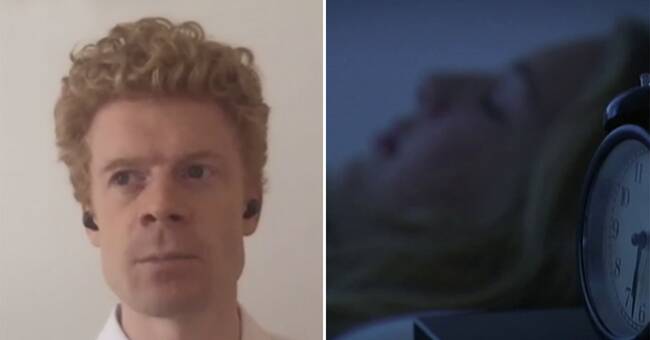Several studies are now focusing on our sleep habits during the pandemic.
- We live in a stressful situation that is unlimited in time, we do not know when it will end and it affects sleep for many, says Jonathan Cedernaes, sleep researcher at the Department of Medical Sciences at Uppsala University and Northwestern University, Chicago.
At the same time, Jonathan Cedernaes believes that we will probably get used to the longer the pandemic lasts.
The unusual becomes the ordinary.
- If we look to the future, we can speculate that some effects will disappear, you get used to the new situation, he says.
More time for sleep
Jonathan Cedernaes is one of several researchers in an international study, ICOSS, where effects on our sleep during covid-19 are studied.
They look at factors such as "lockdown", self-isolation and mental anxiety.
- Even though we have on average had more time for sleep during the pandemic, the study shows a poorer quality of sleep for many.
In addition to anxiety and uncertainty, one explanation may be that you get more time to lie in bed and then the risk of waking up more often increases, says Jonathan Cedernaes.
All days are the same
Differences in sleeping times between weekdays and weekends have been evened out during the pandemic.
An American study, published in Current Biology, addresses the concept of "social jet lag".
It reflects the difference between how you sleep according to your biological clock when you are free and even sleep times when you work.
- By working from home, several research groups have seen that "social jet lag" has decreased, ie the circadian rhythm on weekends and weekdays is more similar to each other.
It can have positive effects on our health.
Now more people can adapt every day to their biological clock, says Jonathan Cedernaes.
Our routines are disrupted
Jonathan Cedernaes explains that even though many can live more according to their biological clock during the pandemic, not everyone's sleep quality improves.
When we do not go to work in the morning, we miss a chance at sunlight.
- With less sunlight, there is a risk that we get poorer daily routines such as meal times and such factors can in turn lead to poorer sleep, he says.
Napping can be a sign of poor sleep
Jonathan Cedernaes believes that the best measure of whether you sleep well is that you do not feel tired during the day.
Waking up a few short times a night is also common for many adults.
- If you suddenly need to take a nap in the middle of the day, it may indicate insufficient sleep during the night, but it is also individual, he concludes.
Play the clip to hear Jonathan Cedernaes share some tips to improve your sleep.

